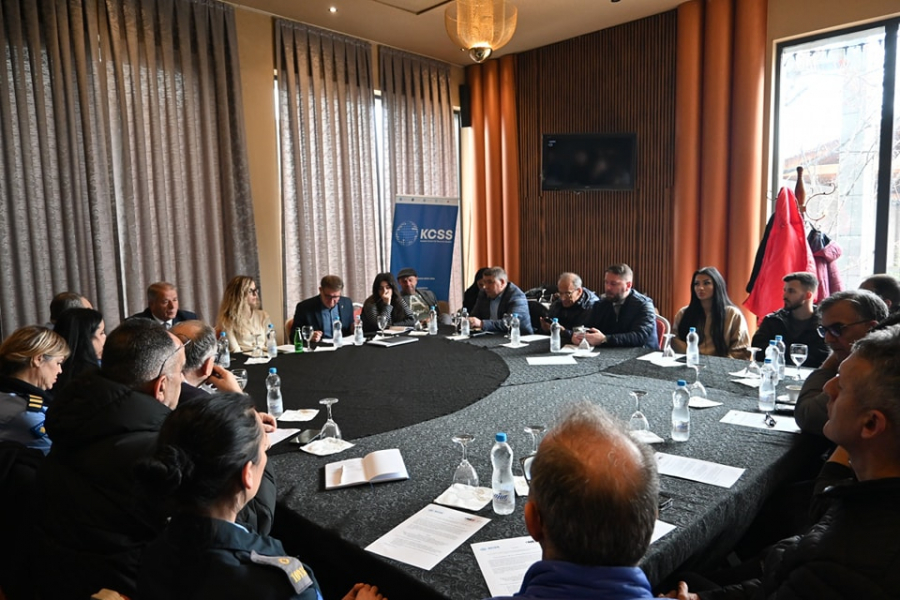24/01/2025

On January 24th, the Kosovar Center for Security Studies held a roundtable discussion in the municipality of Viti. This is the third activity taking place at the local level as part of the project “Increasing Government Transparency and Accountability in Interethnic Dialogue,” supported by National Endowment for Democracy (NED). The main focus of the roundtable was to address challenges that people from all communities in Viti might be facing in the economic, educational, and interethnic sectors.
The event saw the presence of both local municipal workers, Kosovo Police, Local Health Institutions, journalists, civil society representatives and young activists, showcasing different perspectives and recommendations regarding a better future for Vitia. The event was opened by Jeta Loshaj, researcher at KCSS followed by welcoming words from the Deputy Mayor of Vitia, Hasan Aliu, and local activist and journalist, Tefik Salihu.
KCSS shared their experiences with the municipalities of Kamenica and Gračanica, where good interethnic relations seem to be a staple of everyday life. The municipality of Viti agreed that interethnic relations in their city are very positive. For example, the Chief of Police shared that cases requiring their involvement are never ethnically motivated and that their services are provided without consideration of ethnicity. A representative of the local firefighters echoed this sentiment, adding that their units respond to everyone as best they can. Ethnicity does not even factor in conversation. One of the local doctors added that they also do not face anything ethnically motivated by their workers or by patients.
Another topic of discussion was the role of disinformation in targeting interethnic relations and how/if the citizens of this municipality are affected by news that seeks to spread fear among the Kosovar society. When asked about disinformation, the participants agreed that it should be dealt with in a timely manner. One participant added that, whether intentional or not, such news causes harm that is very difficult to undo.
When asked about interethnic relations post-Banjska (and the Ibër-Lepenc terrorist attacks), most of the participants said that it did not affect them at all. However, a representative from the local NGOs contested this, stating that these attacks affected their work considerably. Valmir, one of the youth representatives, said that it is difficult to get people to participate in their projects. The attacks only made this more difficult, and they have even had cases where projects failed.
This added experience brought one more reason for a deeper commitment to better interethnic relations. The discussion ended on a positive note, with a promise to strive for these deeper commitments. This is the third community roundtable under the project “Increasing Government Transparency and Accountability in Interethnic Dialogue,” supported by National Endowment for Democracy (NED). We will be organizing three more of these types of roundtable discussions in other municipalities across Kosovo to receive a better grasp of interethnic relations in the country in order to promote inclusive and transparent policymaking.